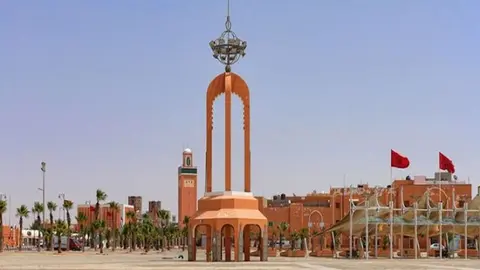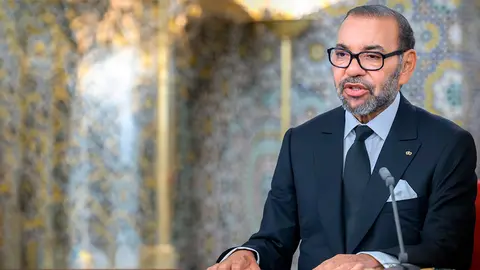Morocco and Palestine: principled diplomacy in a broken world

- More than aid: a geopolitical message
- The Al-Quds Committee: an instrument of symbolic sovereignty
- A lesson in balance in a polarised world
- Foreign policy with soul
It is a high-level political statement, a strategic reaffirmation of a consistent diplomatic line, and a clear signal: in Rabat, the moral compass has not yet been dismantled.
More than aid: a geopolitical message
Moroccan aid — nearly 180 tonnes of basic foodstuffs, children's products, medicines, surgical equipment and tents — is not just a humanitarian logistical operation. The fact that a specific corridor has been organised for direct delivery to Palestinian beneficiaries implies a political will for effectiveness and a real presence on the ground. In diplomatic language, this is more than a humanitarian gesture: it is an act of sovereign affirmation in regional crisis management and a subtle way of saying that the Maghreb is not absent from the theatre of the Palestinian cause.
In a region where many actors have aligned themselves with conflicting agendas or normalised their international relations at the cost of silence on Gaza, Morocco is building its legitimacy not on the basis of proclamations, but on verifiable actions. And it is precisely this consistency between discourse and practice that strengthens its credibility with its traditional partners, such as Europe and the United States, while maintaining moral authority in the Arab and Islamic world.
The Al-Quds Committee: an instrument of symbolic sovereignty
The presidency of the Al-Quds Committee is not a ceremonial title for Morocco. It is a forum for international action that the Kingdom has managed to preserve and activate when circumstances require it. The defence of the Arab and Muslim identity of Jerusalem is not limited to the religious sphere; it has direct implications for regional balance, historical legitimacy and the future stability of the Middle East.
In this sense, Morocco operates with principled diplomacy, but without falling into immobilism. Its support for the two-state solution, its rejection of unilateral settlement policies, its defence of the rights of the Palestinian people, and at the same time its openness to new regional balances, reveal a diplomacy that articulates values with strategic interests in a mature and intelligent manner.
A lesson in balance in a polarised world
The uniqueness of Morocco's position lies in its ability to maintain a difficult balance: on the one hand, it unconditionally supports Palestinian rights and denounces the suffering in Gaza; on the other hand, it maintains diplomatic channels with various actors, including those with whom it has profound differences on the Palestinian issue.
This duality is not ambiguity, but a form of ‘soft power’ that positions Morocco as a potential mediator, a facilitator of dialogue, an actor that does not lose legitimacy on any front. In a world where most countries have become prisoners of rigid alliances, Morocco shows that it is possible to navigate turbulent waters without losing one's ethical compass or political effectiveness.
Foreign policy with soul
The Kingdom of Morocco's shipment of humanitarian aid to Gaza cannot be analysed as an isolated piece of news. It is part of a broader diplomatic narrative, where the commitment to Palestine is constant, operational and multifaceted: humanitarian, political, religious and symbolic. Faced with a morally collapsing international order, Morocco offers a rare combination of dignity and realism, principles and pragmatism.
At a time when international politics seems dominated by cold calculation and strategic indifference, Morocco is reintroducing the element of ethical awareness into foreign policy. And that may ultimately be its deepest advantage on the global stage: doing politics without losing its soul.



